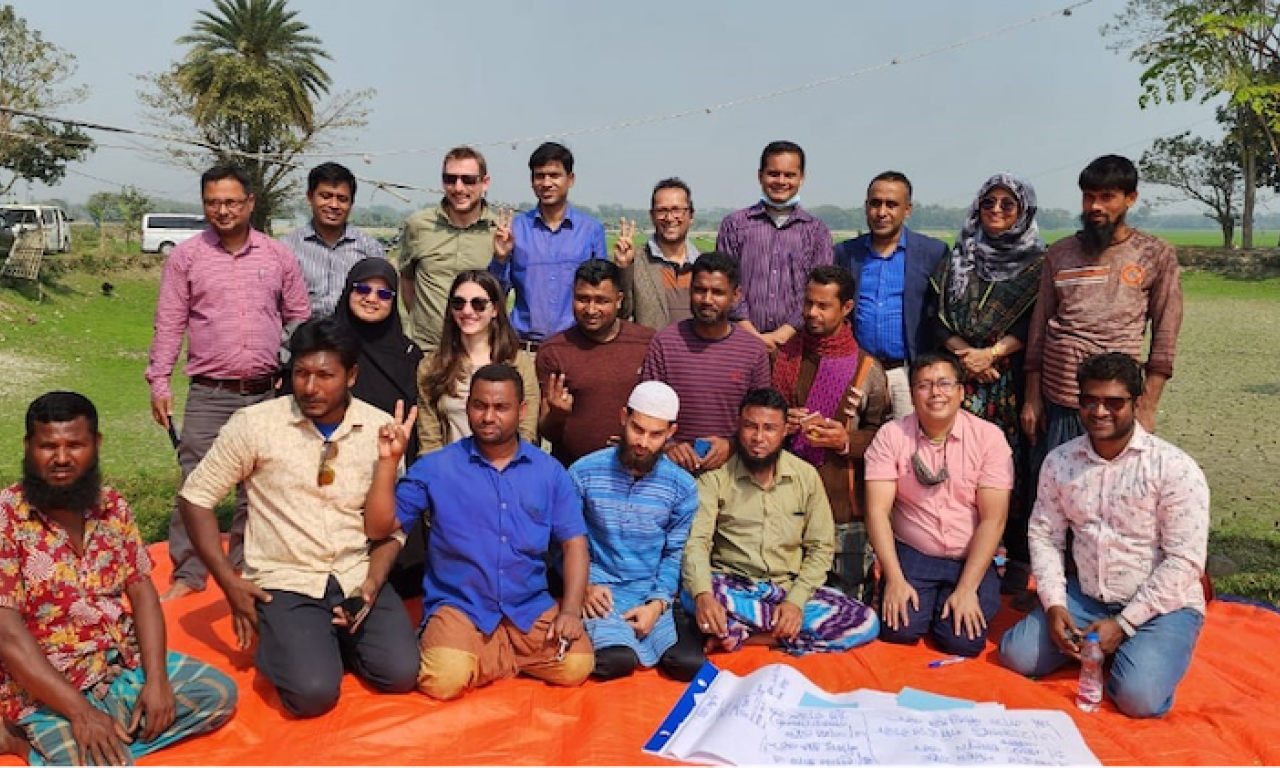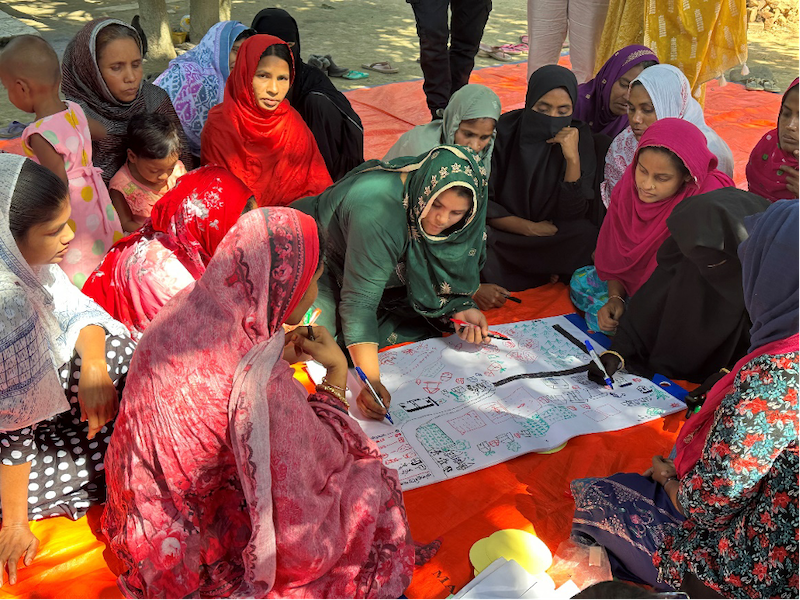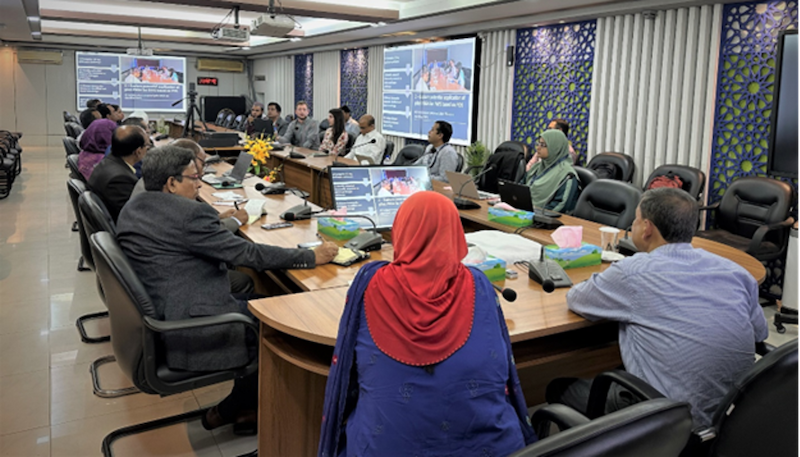
- Finfish biosecurity in Bangladesh is a growing concern due to the high demand for fish and the increasing prevalence of diseases in aquaculture.
- WorldFish and partners are working with Bangladesh national research institutions and national competent authorities to design and develop finfish biosecurity training modules to reduce antimicrobial use (AMU) and antimicrobial resistance (AMR) burden in commercial finfish aquaculture systems.
- Through an 8-day participatory pilot program in February 2023, collaborative partners identified major pathogen-spread pathways, current biosecurity practices and gaps in commercial finfish aquatic production systems.
Finfish biosecurity in Bangladesh is a growing concern due to the high demand for fish and the increasing prevalence of diseases in aquaculture. Poor biosecurity practices and limited knowledge among farmers lead to disease outbreaks and the overuse of antimicrobials, for instance, antibiotics, contributing to antimicrobial resistance (AMR).
WorldFish and partners are working with Bangladesh’s Department of Fisheries (DoF) and Department of Fish Inspection and Quality Control (FIQC), as well as the Bangladesh Fisheries Research Institute (BFRI) to design and develop finfish biosecurity training modules to reduce antimicrobial use (AMU) and AMR burden in commercial finfish aquaculture systems in Bangladesh.
Collaborators include the FAO Emergency Centre for Transboundary Animal Diseases (ECTAD), the UK Centre for Environment, Fisheries and Aquaculture Science (CEFAS) and the UK FAO Reference Centre for Antimicrobial Resistance (UKFRCA).
As a part of this wider objective, the collaborative partners jointly organized an 8-day participatory pilot program in February 2023 to identify major pathogen-spread pathways, current biosecurity practices and gaps in commercial finfish aquatic production systems.
Contributing to the Bangladesh AMR National Action Plan

The participatory pilot program started with ECTAD conducting and sharing a participatory disease surveillance (PDS) session, a form of active disease surveillance at the community level through observation, interview and investigation in the livestock sector.
Collaborative partners adopted and implemented the principles of PDS at the community level in two villages in Trakanda Upazila, Mymensingh. Fish seed, aquatic feeds, aquatic animal handling, fish restocking, water, predatory animals, hygiene, transportation, equipment, mortality disposal, waste disposal and natural disasters were identified by participating finfish farmers as the key pathways of spreading pathogens in their farms.
Through focus group discussions, participating farmers identified prevalent biosecurity measures in fish farms already implemented in the community, as well as biosecurity improvement measures.
“Biosecurity is a critical component in finfish farming for disease prevention, antimicrobial reduction and the production of high-quality products,” said Md. Maqueshudul Haque Bhuiyan, DoF’s senior assistant director.
“This work will aid in the optimization and improvement of biosecurity practices in Bangladesh’s finfish farms, thereby reducing the use of antimicrobials and contributing to the achievement of the strategic objectives of the Bangladesh AMR National Action Plan,’’ added Bhuiyan.
Scaling to other regions in Bangladesh

The pilot program was well received by fish farmers who participated.
“We must implement effective and feasible biosecurity measures and plans to reduce the risk of disease outbreaks in our farms,” said Mostofa Jamal, a small-scale finfish farmer.
“If we can keep these measures in place, disease incidence and associated cost of using therapeutic products will be lowered and we will undoubtedly benefit,” added Jamal.
The program’s outcomes were debriefed to DoF officials, including Kh. Mahbubul Haque, DoF’s director general. Participating experts emphasized the importance of implementing the program in diverse geographical areas of Bangladesh to obtain a more comprehensive picture. The meeting’s recommendations were incorporated with short-, mid- and long-term plans developed and communicated to partners.

